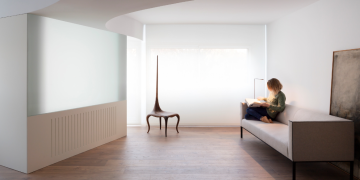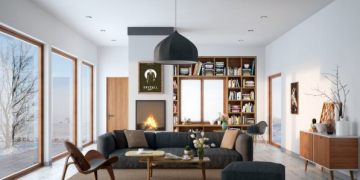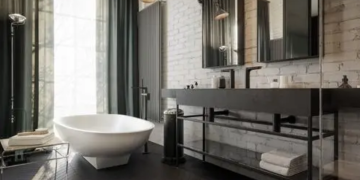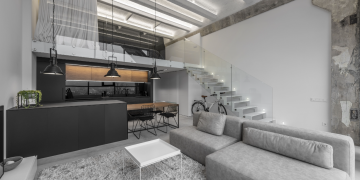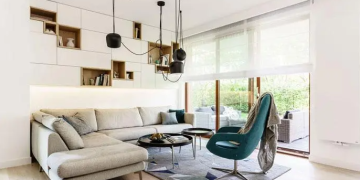Voice-controlled homes, also known as smart homes, represent the pinnacle of modern technological innovation. With the integration of virtual assistants, these homes offer unparalleled convenience and efficiency to users. The concept of voice-controlled homes has gained significant traction in recent years, revolutionizing the way we interact with our living spaces.
Benefits of Voice-Controlled Homes
The allure of voice-controlled homes lies in their ability to streamline everyday tasks and enhance accessibility for users of all ages and abilities. Through voice commands, individuals can control various aspects of their home environment, from adjusting the thermostat to dimming the lights, all with simple verbal instructions.
Popular Virtual Assistants
Leading the charge in the realm of virtual assistants are industry giants such as Amazon’s Alexa, Google Assistant, and Apple’s Siri. These virtual companions offer a wide range of features and functionalities, including voice recognition, natural language processing, and personalized recommendations.
Voice-Controlled Home Devices
Voice-controlled home devices encompass a diverse array of products, including smart speakers, thermostats, lighting systems, and security cameras. These devices are designed to seamlessly integrate into the existing infrastructure of a smart home, allowing for centralized control and management.
Integration with Smart Home Ecosystem
One of the key strengths of voice-controlled homes is their ability to integrate with a wide range of smart devices and appliances. This interconnected ecosystem enables users to create customized routines and automate various tasks, enhancing both comfort and efficiency.
Voice-Controlled Homes and Privacy Concerns
Despite their many benefits, voice-controlled homes also raise valid concerns regarding data security and privacy. The constant monitoring and recording of voice commands pose potential risks to user privacy, necessitating robust safeguards and encryption protocols.
Future Trends in Voice-Controlled Homes
Looking ahead, the future of voice-controlled homes is marked by continued innovation and expansion. Advancements in natural language processing and machine learning are poised to further enhance the capabilities of virtual assistants, making them indispensable companions in our daily lives.
Challenges and Limitations
However, the widespread adoption of voice-controlled homes is not without its challenges. Technical constraints, user adaptation, and cost considerations remain significant barriers to entry for many consumers, highlighting the need for ongoing refinement and improvement.
Impact on Daily Life
Despite these challenges, the impact of voice-controlled homes on daily life cannot be overstated. By simplifying routine tasks and fostering greater accessibility, these technologies have the potential to transform household dynamics and improve quality of life for millions of users worldwide.
Case Studies
Real-life examples of voice-controlled homes serve as testament to the transformative power of this technology. From smart thermostats that optimize energy usage to security systems that provide peace of mind, the possibilities are truly endless.
Consumer Adoption and Market Growth
The rapid pace of consumer adoption underscores the growing demand for voice-controlled homes. With market projections pointing towards exponential growth in the coming years, it’s clear that virtual assistants are here to stay.
Environmental Implications
In addition to their practical benefits, voice-controlled homes also offer significant environmental advantages. By optimizing energy usage and reducing waste, these technologies contribute to a more sustainable future for all.
Regulatory Framework and Standards
As the popularity of voice-controlled homes continues to rise, regulatory frameworks and standards are essential for ensuring user privacy and data security. Governments and industry stakeholders must work together to establish clear guidelines and compliance requirements.
Voice-Controlled Homes in Healthcare
Beyond the realm of home automation, voice-controlled technology holds immense potential in healthcare settings. From remote patient monitoring to assistive technologies for the elderly and disabled, virtual assistants are poised to revolutionize the way we deliver and receive care.
Conclusion
In conclusion, voice-controlled homes represent a transformative shift in the way we interact with our living spaces. With their unparalleled convenience, efficiency, and accessibility, these technologies have the power to revolutionize our daily routines and improve quality of life for users around the globe.

FAQs After The Conclusion
- Are voice-controlled homes secure?
- Voice-controlled homes employ various security measures, such as encryption and authentication protocols, to safeguard user privacy.
- What are some popular voice-controlled home devices?
- Popular voice-controlled home devices include smart speakers, thermostats, lighting systems, and security cameras.
- How do virtual assistants improve accessibility?
- Virtual assistants enable users to control various aspects of their home environment through simple voice commands, making them accessible to individuals of all ages and abilities.
- What are the environmental benefits of voice-controlled homes?
- Voice-controlled homes help optimize energy usage and reduce waste, contributing to a more sustainable future for all.
- What are the regulatory challenges associated with voice-controlled homes?
- Regulatory challenges include data privacy concerns and compliance requirements, which vary depending on the region and jurisdiction.
- Can voice-controlled homes be integrated with existing smart devices?
- Yes, voice-controlled homes are designed to seamlessly integrate with a wide range of smart devices and appliances, allowing for centralized control and management.
- How do voice-controlled homes impact daily routines?
- Voice-controlled homes streamline routine tasks and automate various processes, saving users time and effort in their daily lives.
- What is the future outlook for voice-controlled homes?
- The future of voice-controlled homes is marked by continued innovation and expansion, with advancements in natural language processing and machine learning driving further growth and adoption.




